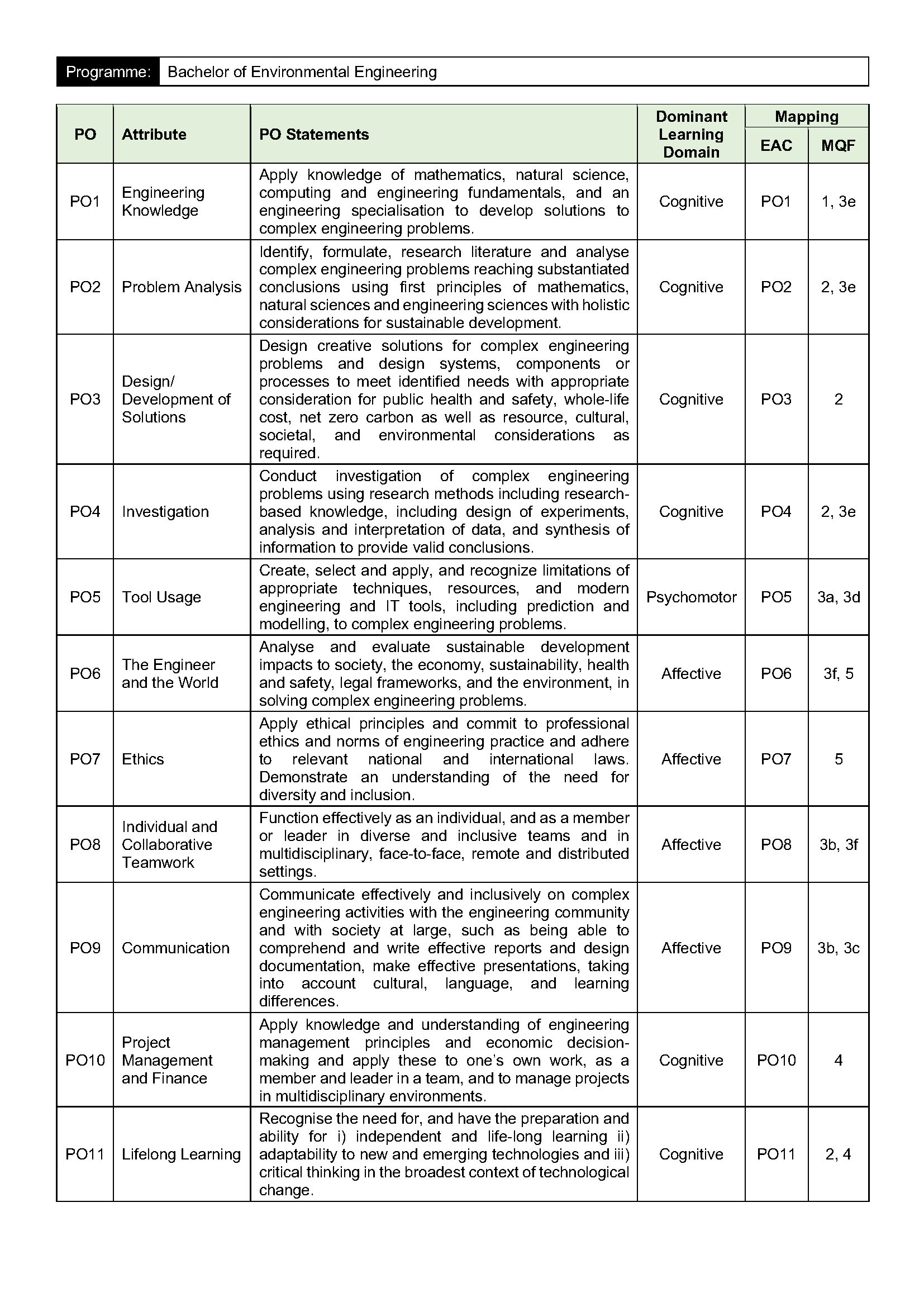Bachelor of Environmental Engineering With Honours
-
This program aims to produce manpower at the professional level who are skilled and have strong knowledge in the field of Environmental Engineering. The program covers the element of civil and chemical engineering, environmental laws, safety and health, environmental and project management.
Career Opportunities
- Environmental Engineer
- Environmental Research Officer / Executive
- Process Engineer
- Occupational Safety, Health And Environmental Engineer
- Quality Assurance/Quality Control Engineer
- Pollution Control Engineer
- Process/Production Engineer
- Building Modeller
-
![]()
Program educational objectives (PEO) are specific goals consistent with the mission and vision of the university, are responsive to the expressed interest of program stakeholders, and describe the expected achievements of graduates in their career and professional life a few years after graduation.
PEO1 Graduates who have developed career advancement in the field of Environmental Engineering or related engineering field. PEO2 Graduates who are involved in a professional body or society. PEO3 Graduates who pursue lifelong learning. -
![]() Program outcomes (PO) are narrower statements that describe what students are expected to know and be able to do by the time of graduation.
Program outcomes (PO) are narrower statements that describe what students are expected to know and be able to do by the time of graduation. -
![]()
-
![]() This programme is recognised by the Board of Engineers Malaysia (BEM) and accredited by the Engineering Accreditation Council (EAC), ensuring that it meets national professional and quality standards.
This programme is recognised by the Board of Engineers Malaysia (BEM) and accredited by the Engineering Accreditation Council (EAC), ensuring that it meets national professional and quality standards.




.jpg)